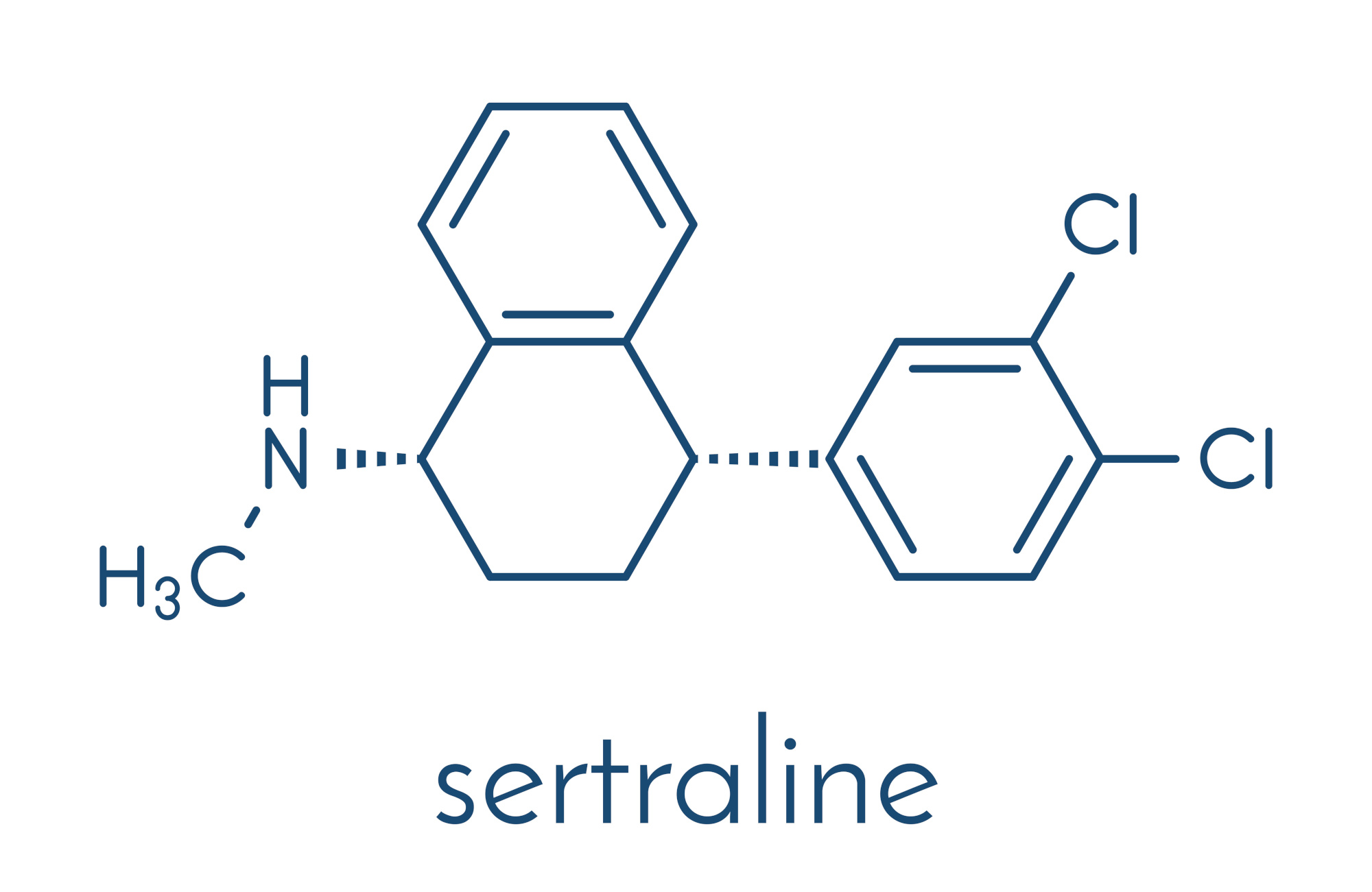Zoloft, known generically as sertraline, is a widely prescribed antidepressant that belongs to the class of medications called selective serotonin reuptake inhibitors (SSRIs). SSRIs work by increasing the levels of serotonin, a neurotransmitter in the brain that plays a key role in mood regulation. For many individuals, Zoloft is essential in managing conditions such as depression, anxiety disorders, post-traumatic stress disorder (PTSD), and obsessive-compulsive disorder (OCD). It is often chosen because it is considered effective and generally well-tolerated by most patients.
So, if you’re pregnant but have been using Zoloft to manage your mental health, you might be asking, Is Zoloft safe while pregnant? Answering this question requires nuance because mental health conditions can be particularly challenging during pregnancy. The added stress and hormonal changes can feel overwhelming, and Zoloft can help stabilize mood and reduce symptoms of anxiety or depression. It’s important to empower expectant mothers to maintain their health and well-being during this critical time because untreated mental health issues can negatively impact both the mother and the developing fetus. Keep reading as we answer the question, Can you take Zoloft while pregnant?
Next Steps
If you’re struggling with addiction, you don’t have to face it alone. At Casa Capri, we offer expert, women-centered care in a supportive and nurturing space—designed by women, for women. Our team is here to help you heal with purpose and connection.
Call our admissions team for a free, confidential chat—we’ll even check your insurance and estimate any costs upfront.
The Risks of Taking Zoloft During Pregnancy
Some studies have suggested that SSRIs, including Zoloft, may be associated with certain risks when taken during pregnancy. These risks may include preterm birth, low birth weight, and complications such as respiratory distress in newborns. Additionally, there is concern about a rare but serious condition called persistent pulmonary hypertension of the newborn (PPHN), which has been linked to SSRI use during the later stages of pregnancy.
Despite these concerns, it is important to recognize that research on the subject is not entirely conclusive. While some studies indicate potential risks, others suggest that the actual risk may be minimal or even negligible when compared to the dangers of untreated maternal depression or anxiety. It is also essential to consider the timing of SSRI exposure during pregnancy, as risks may vary depending on whether the medication is taken during the first, second, or third trimester.

Long-Term Effects on Children Exposed to Zoloft In Utero
Research in this area is ongoing, and while some studies suggest that there may be certain risks associated with prenatal exposure to SSRIs, the findings are not always consistent. Understanding the potential long-term effects can help parents make informed decisions about their treatment during pregnancy and monitor their child’s development with the support of healthcare professionals.
Some studies have raised concerns about the possibility of developmental delays, behavioral issues, or learning difficulties in children exposed to SSRIs like Zoloft in utero. These studies suggest that there may be a slightly increased risk of conditions such as autism spectrum disorder (ASD) or attention deficit hyperactivity disorder (ADHD). However, it’s important to note that these risks are generally low, and many children exposed to SSRIs during pregnancy develop typically without any issues.
Next Steps
If you’re struggling with addiction, you don’t have to face it alone. At Casa Capri, we offer expert, women-centered care in a supportive and nurturing space—designed by women, for women. Our team is here to help you heal with purpose and connection.
Call our admissions team for a free, confidential chat—we’ll even check your insurance and estimate any costs upfront.
Benefits of Continuing Zoloft During Pregnancy
For many women asking, Can Zoloft be taken while pregnant?, the benefits of continuing Zoloft during pregnancy may far outweigh the potential risks. Mental health is a fundamental aspect of overall well-being, and the ability to manage conditions such as depression or anxiety effectively during pregnancy can have a profound impact on both the mother and the developing baby. Zoloft for pregnant women, when used appropriately, can help maintain emotional stability, reduce stress, and support the mother’s ability to engage in healthy behaviors throughout her pregnancy.
One of the primary benefits of continuing Zoloft during pregnancy is the prevention of relapse. For women who have been successfully managing their mental health with Zoloft prior to becoming pregnant, discontinuing the medication can lead to a resurgence of symptoms. Depression and anxiety can severely impair a woman’s ability to function, making it difficult to adhere to prenatal care, maintain a balanced diet, and avoid harmful behaviors such as substance use. The consequences of untreated mental health conditions can extend beyond pregnancy, increasing the risk of postpartum depression and affecting the mother’s ability to care for her newborn.
In some cases, a healthcare provider may determine that the best course of action is to adjust the dosage of Zoloft rather than discontinue it entirely. This approach allows for the continued management of mental health symptoms while potentially reducing any risks associated with higher doses. Some women may also benefit from additional support, such as therapy or counseling, in conjunction with medication to ensure that they are receiving comprehensive care during their pregnancy.
Alternatives to Zoloft During Pregnancy
If you’re still wondering, Can you take Zoloft while pregnant?, there are alternatives. For example, you could use other antidepressants that are considered safer during pregnancy. For example, some studies suggest that certain SSRIs, such as fluoxetine (Prozac), may carry a lower risk of adverse effects in pregnancy. However, the safety profiles of these medications can vary, and what works for one person may not be suitable for another. Your healthcare provider can help you determine whether a different antidepressant might be a better option based on your specific needs and medical history.
Non-pharmacological treatments are another viable alternative for managing depression and anxiety during pregnancy. Cognitive behavioral therapy (CBT) is a well-established and effective treatment for many mental health conditions and can be particularly beneficial for pregnant women. CBT helps individuals identify and change negative thought patterns and behaviors, reducing symptoms of depression and anxiety without the need for medication. Other forms of therapy, such as interpersonal therapy (IPT) and mindfulness-based cognitive therapy (MBCT), may also be helpful.
In addition to therapy, lifestyle changes can play a crucial role in managing mental health during pregnancy. Regular physical activity, a balanced diet, adequate sleep, and stress management techniques such as meditation or yoga can all contribute to improved mental well-being. While these strategies may not replace medication for everyone, they can be valuable components of a comprehensive treatment plan that prioritizes both mental and physical health.
Next Steps
If you’re struggling with addiction, you don’t have to face it alone. At Casa Capri, we offer expert, women-centered care in a supportive and nurturing space—designed by women, for women. Our team is here to help you heal with purpose and connection.
Call our admissions team for a free, confidential chat—we’ll even check your insurance and estimate any costs upfront.
Managing Mental Health Without Medication
Therapy is often the cornerstone of non-medication treatment for mental health conditions during pregnancy. Cognitive behavioral therapy (CBT) is one of the most widely used and effective therapies for treating depression and anxiety. Other therapeutic approaches, such as interpersonal therapy (IPT) or psychodynamic therapy, can also be effective depending on the individual’s needs.
In addition to therapy, lifestyle modifications can significantly impact mental health. Regular physical activity, such as walking, swimming, or prenatal yoga, has been shown to reduce symptoms of depression and anxiety. Exercise releases endorphins, the body’s natural mood elevators, and can help improve sleep, reduce stress, and boost self-esteem. A well-balanced diet rich in nutrients, especially omega-3 fatty acids, B vitamins, and magnesium, can also support brain health and stabilize mood.
Get the Help You Need
Deciding whether to take Zoloft during pregnancy can feel overwhelming, especially if you’re also navigating the challenges of addiction and mental health. It’s important to remember that your well-being is crucial not only for yourself but for your growing baby. Seeking guidance from a healthcare provider is the best way to weigh the risks and benefits of treatment options.
If you’re struggling with addiction or mental health alongside these decisions, reaching out for professional support is essential. Can you take Zoloft while pregnant? is an important question, but you may have more pressing concerns if you’re facing addiction. At Casa Capri, we provide compassionate care tailored to your recovery journey. Our drug rehab for women offers the resources and guidance you need to heal and thrive. You don’t have to go through this alone—we’re here to help.

FAQs About Taking Zoloft While Pregnant
Can Zoloft affect fertility or the ability to conceive?
If you’re taking Zoloft and trying to conceive, it’s advisable to have an open discussion with your healthcare provider. They can assess your overall health, review any potential risks, and ensure that you have the best plan in place for both your mental health and your reproductive goals. This conversation might also include considerations of timing, alternative treatments, and any adjustments to your current medication regimen.
Is it safe to switch from Zoloft to another antidepressant during pregnancy?
Switching antidepressants during pregnancy can be a delicate process that requires careful planning and medical supervision. While some antidepressants are considered safer during pregnancy, the transition from one medication to another can sometimes pose challenges, including the risk of withdrawal symptoms, relapse of depressive or anxiety symptoms, or new side effects from the alternative medication. Discuss any changes in your medication with your healthcare provider before you make them.
How long should I wait after giving birth before resuming or adjusting my Zoloft dosage?
For many women, the hormonal fluctuations and new responsibilities associated with caring for a newborn can trigger or exacerbate symptoms of depression or anxiety, known as postpartum depression. If you previously relied on Zoloft to manage your mental health, your healthcare provider might recommend continuing the medication during your pregnancy or resuming the medication soon after delivery to help prevent a relapse. If you’re breastfeeding, your provider will also consider the safety of Zoloft for your nursing infant, as only a small amount of the drug passes into breast milk and is generally considered safe.
What are the signs that Zoloft may not be working effectively during pregnancy?
Signs that the medication may not be working effectively can vary, but some common indicators include a return or worsening of depressive or anxiety symptoms, such as persistent sadness, loss of interest in activities you once enjoyed, excessive worry, or irritability. You might also notice that you are having trouble functioning in daily life, experiencing disrupted sleep patterns, or struggling with changes in appetite.
In more severe cases, thoughts of self-harm or hopelessness might emerge, indicating that your current treatment plan needs to be reassessed. It’s also possible that you may experience new symptoms or side effects that could suggest the medication is no longer as effective or that your body’s response to the medication has changed due to pregnancy-related factors.
If you observe any of these signs, contact your healthcare provider as soon as possible.
Can Zoloft cause complications during labor and delivery?
While most women who take Zoloft during pregnancy experience a normal labor and delivery, there are some potential risks that should be considered. Some studies suggest that SSRIs, including Zoloft, could be associated with certain complications during labor, such as an increased risk of bleeding, prolonged labor, or the need for interventions like cesarean delivery. However, these risks are generally considered low and must be balanced against the benefits of maintaining mental health stability during pregnancy.



